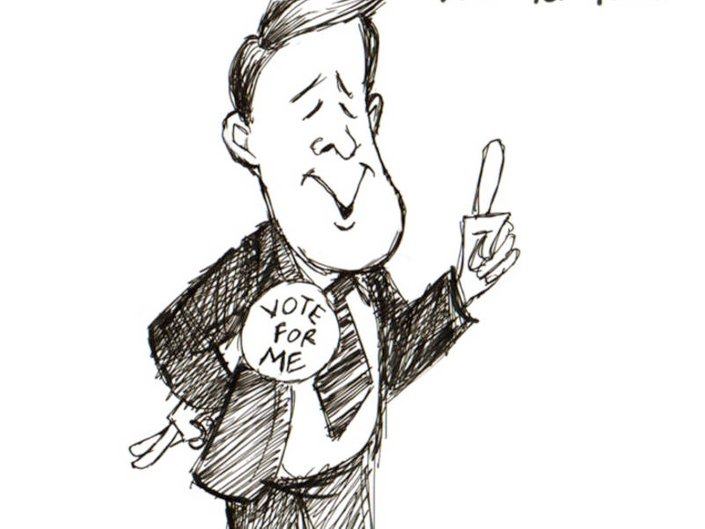Sharf: The revolt of Colorado’s political elites
Laws outlining government powers frequently come with restrictions. (See the U.S. Constitution for an excellent example.) Sometimes, the laws are restrictions, and they include exceptions. And sometimes, people vote down expansions or loosening of those restrictions.

Described by one side as guardrails and the other as a straitjacket, such restrictions very quickly morph into obstacles to be overcome or, in extremis, ignored. That such arrogance is profoundly disrespectful to the people of Colorado hasn’t kept it from being the default position of far too many elected officials.
Examples are legion. In 2018, voters rejected a proposal for a half-mile setback for new oil and gas wells by a 10-point margin. Nevertheless, the current legislature has passed and the governor signed Senate Bill 19-181. That law would allow local governments to ban all new wells, and the state is drafting regulations permitting exactly the setback that voters decisively rejected.
Often, legislators will seek to exploit rules or exceptions in a way they were never intended to be used. The Colorado State Constitution contains a provision exempting 50 percent of the first $200,000 of home value from local property tax assessment for seniors. In that exemption, provision is made for the legislature to fiddle around with the amount of the exemption, in order to account for changes in home values or incomes. House Bill 19-1317, sponsored by Lois Court, the current Chairman of the Senate Finance Committee, would have abused that provision, setting the exemption to $0. In effect, the legislature would have eliminated a Constitutional program through statute. Fortunately, the bill died in committee, 9-0.
Similarly, Coloradans witnessed Senate Bill 17-267, a.k.a, The Great Betrayal of 2017. Under that misbegotten law, leading Senate Republicans joined with Democrats to create an “enterprise” exempt from the Taxpayer’s Bill of Rights (TABOR) to manage the Hospital Provider Fee (itself an insult to voters’ intelligence). The revenue from the enterprise is no longer subject to TABOR limits, buying hundreds of millions of dollars of leeway before potential refunds kick in; the governor-appointed board can raise fees without a vote of the people.
To listen to the legislators, they were forced into it, the poor dears. As Governing magazine reported: “SB 267 is a prime example of how TABOR puts lawmakers in a straitjacket, says state Rep. Dan Thurlow, a Republican. ‘As we sit there and wrestle with the budget contradictions, it almost drives us into the trap of doing things that voters perceive are underhanded and trying to trick them,’ he says. ‘It is sneaky. But that’s the hole we’ve got ourselves in.’”
They’re just lawmakers whose intentions are good; oh, please don’t let them be misunderstood.
When it comes directly to taxes, the sharks are even more aggressive. Sen. Court agreed to introduce legislation implementing Constitutionally-required property tax cuts because, “It’s not a huge difference, financially. And she doesn’t want to risk losing a lawsuit.” Yes, Sen. Court, we know what you are; now we’re just haggling over the price.
One lawsuit she wasn’t afraid of losing was the federal case she and other mostly Democratic officials brought against the Colorado Constitution, seeking to have TABOR declared unconstitutional. Using a legal theory that could most charitably be described as “novel,” the plaintiffs claimed that the law’s restrictions on the legislature’s ability to tax and spend without limit or public approval violated the U.S.Constitution’s provision that each state have a “republican form of government.” A federal judge sharply disagreed.
When manipulating the rules and suing the voters doesn’t work, there’s always the option of substituting words for things. With Senate Bill 19-188, a bill providing for mandatory family and medical leave, the General Assembly was prepared to rebrand a universal payroll tax increase as a “fee” for the mandatory privilege of participating in the program. Taxes require voter approval; new fees and fee increases do not. In this gamesmanship-in-place-of-statesmanship, they have been encouraged by compliant courts that have upheld a variety of lesser infractions. The bill was amended to create a task force to “study” the idea, which will certainly be back next year.
And even on those occasions when the people do make them pay a political price, the laws remain in effect. In 2013, two leading Democratic state senators, including the President of the Senate, were recalled over gun control votes wildly unpopular in their districts. A third was forced to resign to avoid flipping control of the chamber back to Republicans. And yet, the laws remains in effect. Not one was repealed.
Thus do Colorado’s elites revolt against their own people.
Joshua Sharf is a fiscal policy analyst at the Independence Institute, a free market think tank in Denver.
Leave a Reply